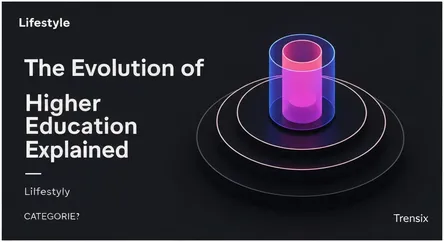Lifestyle
The Evolution of Higher Education Explained

Explore what higher education is, why its future is a trending topic, and how it impacts career paths, personal growth, and financial well-being.
What is it?
Higher education is the advanced level of learning that occurs after secondary school, typically at colleges, universities, and vocational institutions. It encompasses undergraduate programs (like bachelor's degrees) and postgraduate studies (such as master's degrees and doctorates). The goal is to provide students with specialized knowledge, critical thinking skills, and professional training in a vast range of academic and technical fields. It serves as a traditional pathway to professional careers and advanced research, shaping the intellectual and skilled workforce of society.
Why is it trending?
Higher education is a major topic of discussion due to rapid changes in technology and the economy. The rise of online learning platforms and micro-credentials is challenging the traditional campus model, offering more flexible and affordable alternatives. Furthermore, the increasing cost of tuition and the mounting student debt crisis are prompting a global debate about the return on investment of a college degree. People are questioning whether a four-year program is still the most effective path to a successful career in a constantly evolving job market.
How does it affect people?
Higher education significantly impacts an individual's life. Statistically, it often leads to higher lifetime earnings, better job opportunities, and greater career stability. It also fosters personal development, broadens perspectives, and builds valuable social networks. However, the financial burden of student loans can cause long-term stress and delay major life goals like homeownership. Unequal access to quality higher education can also reinforce social inequalities, making it a critical factor in social mobility and economic development.